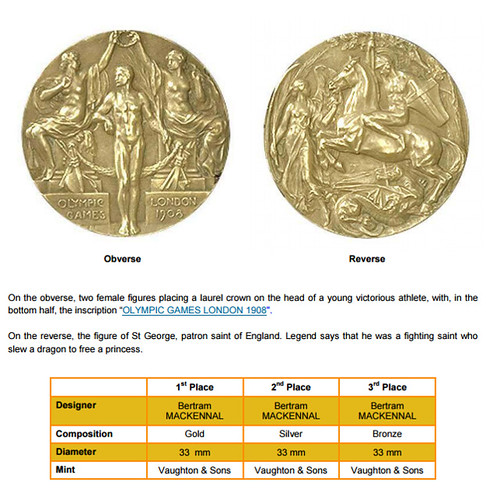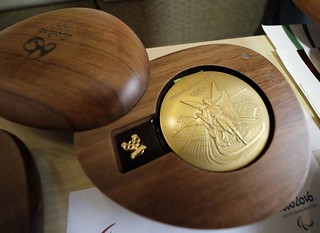
PREV ARTICLE
NEXT ARTICLE
FULL ISSUE
PREV FULL ISSUE
WHY OLYMPIC GOLD MEDALS AREN'T GOLD
This Associated Press article appeared in the Washington Post July 20, 2016. -Editor
They’re also a misnomer. There’s no such thing as a “gold” medal, not at these upcoming Rio Olympics — and really, not ever. Second-place finishers get silver medals and oddly enough, so do the winners, albeit theirs are plated in a tiny amount of gold. That factoid caught even some of those who were put in charge of making the 5,000 or so medals needed for these Rio Games by surprise. “Our operators and some of our developers had the same question,” said Victor Hugo Berbert, who managed the medal-making process and was part of a team of about 100 people at the Brazilian Mint who were part of the project. “We can produce medals out of pure gold. But we know how expensive they are. So gold medals ... are not exactly pure gold.” They’re barely gold at all. The medals given to champions at these Olympics will weigh just over a pound, so to make them entirely from gold would have cost about $23,500 in material, each. By taking the silver medals and then plating them in a tiny amount of Brazilian gold, the actual value of the metal inside those metals is about $600. Not that the athletes will mind. “The gold medal,” hockey legend Wayne Gretzky famously said at the Salt Lake Olympics in 2002 when he was executive director of the gold-winning Canadian team, “is everything.” Though there are a number of exceptions, it’s not uncommon for the medal-making process to fall to the host country’s national mint. That was the case this year, with Berbert saying it took about two years for the entire process to play itself out — starting with discussions on design with the host organizing committee, sketches, ideas, budgeting and ultimately approval from the International Olympic Committee. The mint will store the medals and basically deliver them to the organizing committee on a day-to-day basis — the medals that will be awarded on a given day will be kept safe as can be until needed. “We have special dates with the committee where they want them delivered,” Berbert said. “There are logistics on how to transfer them to them ... until then, we keep the medals in a safe room. But all the Olympic medals are packaged now, identified by the event and competition, all organized and ready to be delivered.” Ready to be won, too.
It's incorrect to say that the Olympic gold medals have "not ever" been mostly gold. The 1904 St. Louis and 1908 London
Olympic first place medals were composed of gold, for example. Most others were gilt silver. See the background article below, from the
official Olympic web site.
Interesting article, though. Read the complete version online for more about the mint's experience. -Editor 
London 1908 Olympic medal To read the complete article, see:
To read the complete article, see:
Wayne Homren, Editor The Numismatic Bibliomania Society is a non-profit organization promoting numismatic literature. See our web site at coinbooks.org. To submit items for publication in The E-Sylum, write to the Editor at this address: whomren@gmail.com To subscribe go to: https://my.binhost.com/lists/listinfo/esylum All Rights Reserved. NBS Home Page Contact the NBS webmaster 
|
